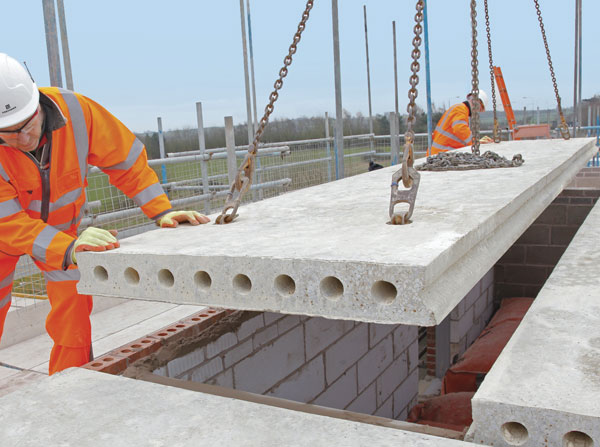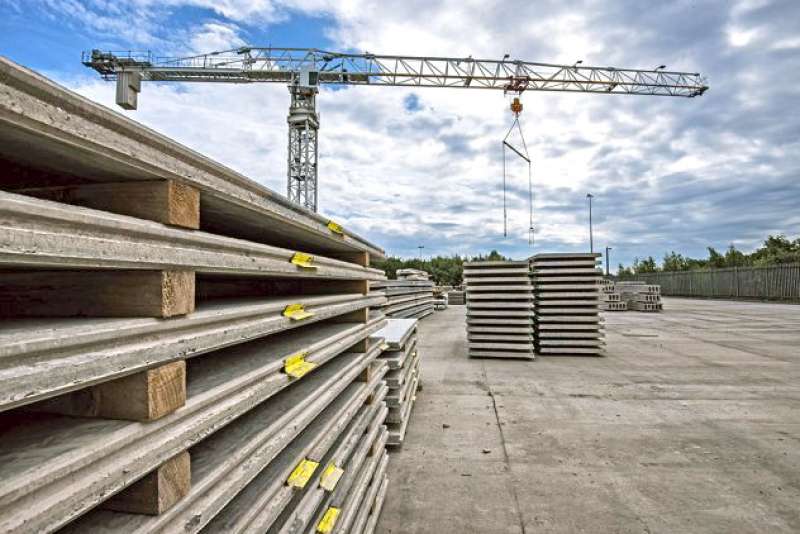The UK’s built environment sector is turning its attention to the embodied carbon in buildings, which - according to the World Green Building Council1 - accounts for 11% of our national total emissions.
Concrete, whilst a default choice for many structures, is acknowledged as a carbon-intensive material and a focus for an industry challenged to develop a roadmap to net-zero. AMA Research has forecast that the precast concrete sector will grow by 18% to £2.3.bn by 20242.
A collaborative team, led by design-for-manufacture experts Akerlof alongside leading UK materials manufacturer Forterra and superstructure and façade construction specialist PCE, supported by engineers Curtins and sustainability consultants Accelar, has collaborated to research and develop processes that significantly reduce the emissions of pre-cast concrete methodology and materials.
Funded by Innovate UK and supported by Ministry of Justice (MoJ) as part of its future capital programmes, this pilot project is aligned to the UK Government’s strategic commitment to developing low-carbon infrastructure, decarbonising the economy and securing better outcomes for the environment.

The Decarbonising Precast Concrete (DPC) project builds on the learning from recent research-based studies on ways to both reduce concrete used and apply lower-carbon concrete mix types, crucially applied against a real-life project. Through collaboration the integrated team have addressed gaps along a typically fragmented value chain, to enable iterative testing, robust data capture and detailed analysis at each stage in engineering an optimised system. Benchmarked against the performance of the MoJ’s existing delivery methods, the project outcomes are intended to be transferable to other sectors and development types, including student and rental housing, and major health and education infrastructure.
Traditional concrete manufacture is a fuel-intensive, electro-intensive and therefore CO2 intensive process, using cement, said to be responsible for as much as 8% of the world's CO23 . While addressing its material makeup to lower manufacturing and embodied emissions is critical to decarbonising, the pathway to net zero relies upon a holistic view: with intelligent design that minimises material use without affecting a structure’s integrity, as well as an understanding of a product’s transport and installation emissions.
The DPC project is therefore made up of three stages:
1. Design Solution Optimisation – minimising material use at the source
2. Material Development and Testing - incorporating use of novel cement and/or clinker substitution technologies and admixtures
3. Production and Logistics Review - identifying opportunities for improvement in carbon emissions.
John Handscomb, Founding Partner, Akerlof, says, “We urgently need to find ways to decarbonise the delivery of the UK’s future infrastructure and buildings, with solutions that are commercially competitive. This pilot brings together innovators from each stage of the process to tackle this challenge directly through a real-life project. We are extremely hopeful that in demonstrating significant carbon reductions we will be able to formalise a project model that can enable others across the industry to apply to their development pipelines, to deliver better outcomes.”
Stephen Harrison, Forterra CEO, says, “This is a UK team, backed by UK innovation money, trialling a way to help UK construction lower its carbon emissions - a vital focus to keep our climate goals within reach as recovery measures stimulate the sector to increase building.”

Simon Harold, Business Development Director, PCE, says, “By looking in the round at one important aspect of delivering today’s buildings, we are confident we’ll find a relatively simple, cost-effective and eminently scalable way to reduce carbon emissions, benefitting our clients’ communities as well as contributing to the UK’s efforts to hit its net zero carbon target.”
Gareth Jones, Head of MMC & Technical Services, Ministry of Justice, says, “This study demonstrates how collaboration through the supply chain can bring subject matter experts together to develop innovative solutions for decarbonising. We look forward to utilising and embedding such solutions in the MoJ’s New Prison Programme.’’
Jonny Voon, Head of the Sustainable Innovation Fund at Innovate UK, added, “Decarbonisation of concrete manufacturing is fundamental to helping the UK government achieve its Net Zero ambition of slashing emissions by 78% by 2035. Innovate UK is proud to support the project and an exciting consortium with their world-leading efforts.”
The pilot’s findings and recommended future methodology, expected to be released in June, will be shared with the sector to enable it to consider a more holistically-sustainable approach as it ramps up delivery of new buildings and infrastructure post-pandemic.









